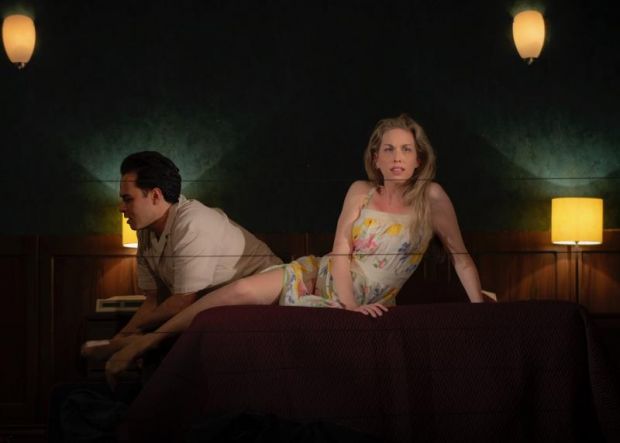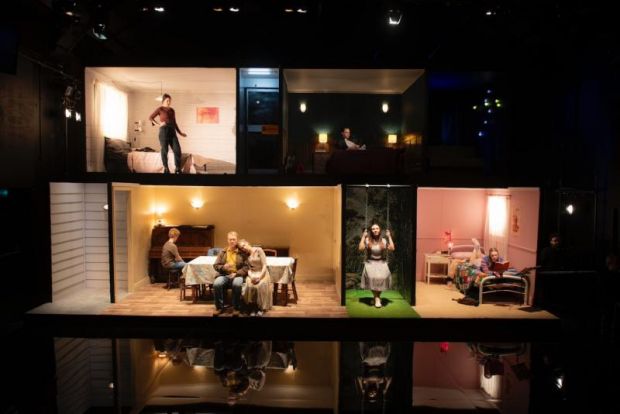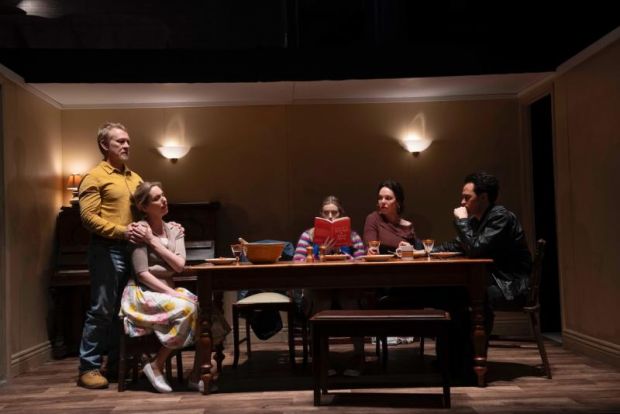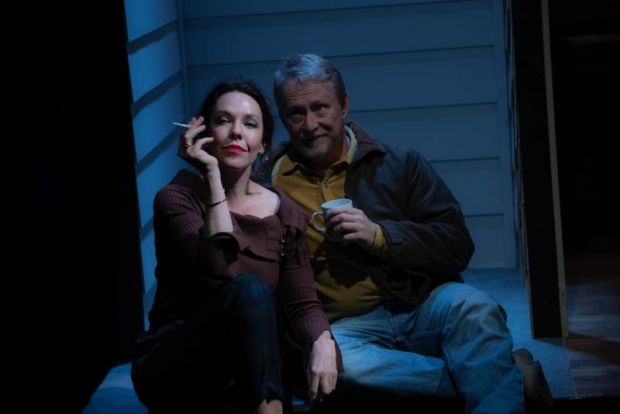The Children’s Bach
The Fox family live happily enough, it seems, by inner Melbourne’s Meri Creek – Athena (Kate Amos), Dexter (Michael Honeyman) and their autistic son Billy (alternating Ben Touzel and Chris Touzel) who does not speak. But sophisticated Elizabeth (Juel Riggall), an old girlfriend of Dexter’s, shows up with her younger sister, immature hostile-dependant teenager Vicki (Lucy Schneider) and Elizabeth’s seductive musician boyfriend Philip (Adrian Li Donnni) and his young daughter Poppy (Chloe Taylor). The Fox household seems warm and welcoming, but Athena, teaching herself and failing to learn piano via the Children’s Bach, becomes more keenly aware of her dissatisfaction… And so ‘modern life’ enters this ‘happy family’.

It’s a dry exercise (and perhaps an unfair one) to note where this lyric opera adaptation differs from Helen Garner’s 1984 quite beautiful novella. The adaptation must, of course, stand alone as an independent work. But to make comparisons here point up what seem to me some unfortunate shortcomings in aspects of this production. I wonder what those unfamiliar with the novel make of the opera version. For them, it’s a stand-alone show and it may be that what they see and hear is a satisfying experience – but I am not in that position.
As with many an adaptation before it, choices have been made, choices here made all the more difficult by the translation from an intimate, impressionistic modern story in the novella to the heightened reality of the lyric opera form. Here that mode is employed on (or imposed on?) a naturalistic, in fact, everyday tale of human-all-too-human people. Sadness and heartbreak, yes, but no life and death drama. Almost all the lines are sung, yes, but by the very nature of the tale, the style of the singing verges on recitative. (By contrast, the operatic form fitted perfectly in Lyric Opera’s last production, the highly stylised but deeply moving, magnificent Biographica.)

The contrast of operatic and naturalistic is emphasised by Jacob Battista’s naturalistic set – but it’s somewhat confusing as well. The set has two storeys, the ground floor being the all-important Fox kitchen (but it lacks completely that slightly grubby but magnetic heart of a family house and just looks like a cold dining room with a piano in the corner). There’s a cubicle with a swing (a park) and Poppy’s room which is somewhere else. The upper storey is not the upper storey of the Fox house but in fact a variety of other locations – Elizabeth’s bedroom, a NY payphone (used once), a hotel room and a night club. Some action takes place on the wide stage apron, and we wonder why more action could not have happened there without all this burdensome detail.
Glen Perry’s storytelling in his libretto hits all the important cause-and-effect plot points, even at times quoting Garner’s key lines of dialogue, but somehow flattens the characters and removes nuance and therefore tension. This is especially crucial with the role of Dexter. In the novella, he’s a hearty, loving, naïve, overgrown boy, always singing, a man who’s sealed himself off from ‘modern life’. Take those traits away and the betrayal and guilt of the ending are weakened considerably. This Dexter hasn’t far to fall – and not much stuffing to have knocked out of him. The Foxes’ other boy, the garrulous but loveable Arthur, is omitted and thus it looks as if the autistic Billy might be all that holds the family together.

What does give Dexter – and the story and the other characters – substance is Andrew Schultz’s score. With an orchestra of just six (Helen Bower violin, Julia Cianci cello, Maddison Furlan double bass, Thomas D’Ath clarinet & bass clarinet, Isaac Mouskovias piano, and Anna Camara percussion) conducted by Lyric Opera’s Artistic Director Patrick Burns, Shultz’s music qua music carries The Children’s Bach. I found myself attending to it rather than to the action on stage. With its skilful mixture of styles, it evokes moods and ambiance – sprightly, dark, urban - creates tension and builds to what otherwise would be a muted climax. There is an awkward and, in my view, quite unnecessary attempt to tie music and drama together by having Chloe Taylor’s Poppy (miscast as a schoolgirl) explain the fugue form direct to the audience. Yes, the fugue form is what is being enacted in the drama, but it is alienating rather than helpful to be told and in such a break-flow, blatant manner.

Director Katy Maudlin’s casting is also curious. Obviously, choices would be restricted to actors who can also sing, but here only Juel Riggall, as Elizabeth, seems to have the right qualities – cool if not cold, cynical, intelligent – she sings beautifully and in character.
Given Lyric Opera’s previous fine productions I was very much looking forward to The Children’s Bach – even while being apprehensive about whether they could make it work, given the source material. It’s sad that this time things are rather disappointing.
Michael Brindley
Photographer: Jodie Hutchinson
Subscribe to our E-Newsletter, buy our latest print edition or find a Performing Arts book at Book Nook.
